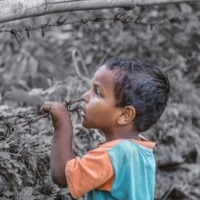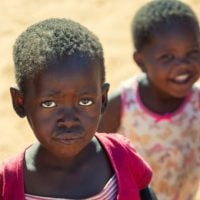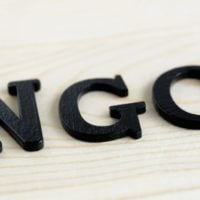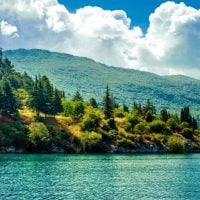Deadline: 3-Mar-22
The National Marine Fisheries Service (NMFS), National Oceanic and Atmospheric Administration (NOAA), Department of Commerce are seeking applications for the 2022 Chesapeake Bay Watershed Education and Training (B-WET) Program, it is an environmental education program that promotes locally relevant, experiential learning for students in kindergarten through 12th grade (K-12).
Chesapeake B-WET is a competitive grant program that supports existing, high-quality environmental education programs, fosters the growth of innovative programs, and encourages capacity building and partnership development for environmental literacy efforts throughout the entire Chesapeake Bay watershed.
B-WET was established in 2002 in the Chesapeake Bay watershed and currently exists in seven regions: Chesapeake Bay, Gulf of Mexico, New England, California, Pacific Northwest, Hawaii, and Great Lakes.
The goal of this funding opportunity is to support projects that increase opportunities for advancing the Meaningful Watershed Educational Experience (MWEE) and environmental literacy at the state-level. These capacity building projects complement a suite of existing BWET projects that work in and across school districts to provide systemic MWEEs and build up local district capacity to advance environmental literacy strategies.
Projects under this announcement are not required to directly reach students and teachers, but should lay the foundation for sustainable and equitable environmental literacy, including MWEEs, at the state or multi-state level.
Priorities
- Through this funding announcement, NOAA is soliciting proposals that support Statewide K-12 Environmental Literacy Initiatives.
- Projects proposed under this priority area build capacity for statewide or multi-state K-12 environmental literacy initiatives which support the policies and structures necessary to advance environmental literacy at a statewide level. Increased capacity for environmental literacy efforts at this level creates opportunities for more and higher quality MWEEs in school districts throughout the watershed.
- Projects should also seek to connect to existing education initiatives like Science, Technology, Engineering and Math (STEM) programming, project-based learning, climate education, or other efforts/initiatives that already have momentum at the state-level. The proposed project should also look for opportunities to increase diversity, equity, and inclusion, directly supporting authentic representation of these voices.
- Examples of activities that may be funded under this priority include but are not limited to:
- Developing a state-level environmental literacy strategy, plan, or framework.
- Creating a state-level environmental literacy advisory group to inform decision makers.
- Expand upon the work that has been started through the Regional Outdoor Learning Network (ROLN), or other comparable efforts, to increase state-level communication across networks and organizations seeking to increase environmental literacy.
- Building capacity for agencies, organizations, and collaboratives that are working statewide to modify or enhance existing programs that ultimately support systemic MWEEs.
- Building a cadre of professionals (school district and/or nonformal leaders) to work across the state to increase knowledge sharing and communication pathways to scale best practices for systemic and sustainable environmental literacy programming (aka “Network Weavers”) with an emphasis on reaching underrepresented communities.
- Supporting and providing resources for key partners to elevate awareness of and the importance of environmental literacy among decision makers, including state boards of education, superintendents, state department of education leadership, funders, and others who create policies, set standards of learning, and make funding decisions to support formal education (aka “Network Influencers”).
- Increase the number of practitioners committed to advancing the MWEE framework with an emphasis on bringing new disciplines and perspectives to environmental literacy (aka MWEE Ambassadors and/or MWEE Facilitators).
Funding Information
- Under this announcement, NOAA anticipates that approximately $450,000 may be available in FY 2022 to fund new applications, subject to appropriations. NOAA anticipates making 4-6 new awards. Projects should not exceed $100,000 annually in Federal funds.
- The project start date should not begin before July 1, 2022. Applications should cover a project period of between one and two years.
Eligibility Criteria
- Eligible applicants are state or local government agencies, interstate agencies, and Indian tribal governments, non-profit organizations, and institutions of higher education.
- For profit organizations, foreign organizations, and foreign public entities are not eligible to apply; however, for-profit and foreign organizations and foreign public entities may participate with an eligible applicant as a project partner. Likewise, Federal agencies are not eligible to receive Federal assistance under this announcement, but may be project partners.
- The Department of Commerce/National Oceanic and Atmospheric Administration (DOC/NOAA) is strongly committed to increasing the participation of Minority Serving Institutions (MSIs), i.e., Historically Black Colleges and Universities, Hispanic-serving institutions, Tribal colleges and universities, Alaskan Native and Native Hawaiian institutions, and institutions that work in underserved communities.
- The NOAA Chesapeake Bay Office (NCBO) encourages proposals involving any of the institutions.
For more information, visit https://www.grants.gov/web/grants/view-opportunity.html?oppId=336569









































